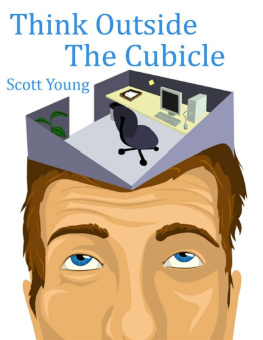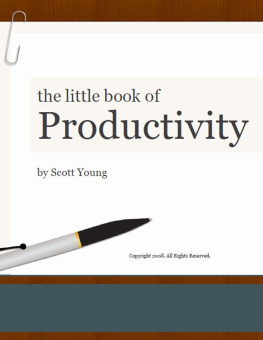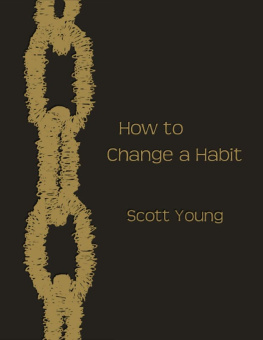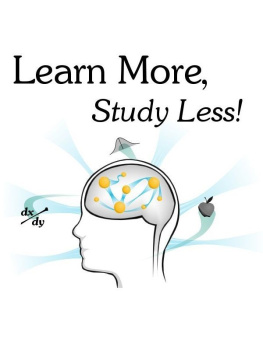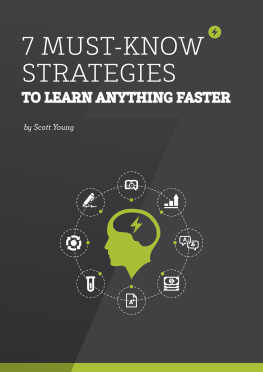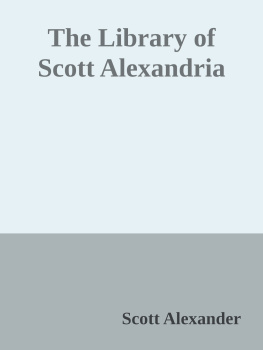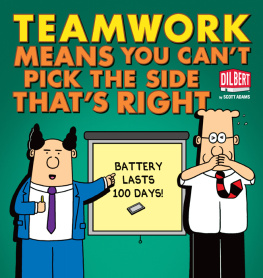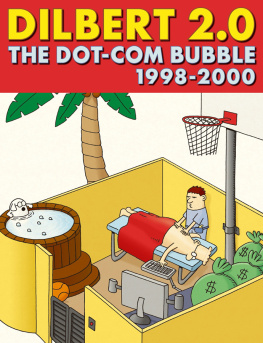Scott Young - Thinking Outside The Cubicle
Here you can read online Scott Young - Thinking Outside The Cubicle full text of the book (entire story) in english for free. Download pdf and epub, get meaning, cover and reviews about this ebook. year: 2011, genre: Science / Home and family. Description of the work, (preface) as well as reviews are available. Best literature library LitArk.com created for fans of good reading and offers a wide selection of genres:
Romance novel
Science fiction
Adventure
Detective
Science
History
Home and family
Prose
Art
Politics
Computer
Non-fiction
Religion
Business
Children
Humor
Choose a favorite category and find really read worthwhile books. Enjoy immersion in the world of imagination, feel the emotions of the characters or learn something new for yourself, make an fascinating discovery.
- Book:Thinking Outside The Cubicle
- Author:
- Genre:
- Year:2011
- Rating:3 / 5
- Favourites:Add to favourites
- Your mark:
- 60
- 1
- 2
- 3
- 4
- 5
Thinking Outside The Cubicle: summary, description and annotation
We offer to read an annotation, description, summary or preface (depends on what the author of the book "Thinking Outside The Cubicle" wrote himself). If you haven't found the necessary information about the book — write in the comments, we will try to find it.
Thinking Outside The Cubicle — read online for free the complete book (whole text) full work
Below is the text of the book, divided by pages. System saving the place of the last page read, allows you to conveniently read the book "Thinking Outside The Cubicle" online for free, without having to search again every time where you left off. Put a bookmark, and you can go to the page where you finished reading at any time.
Font size:
Interval:
Bookmark:
Table of Contents
This guide is for anyone who wants to get more done while working outside an office environment. Its for the student who wants to maximize the impact of his study time so he can get good grades and still enjoy college life. Its for the freelancer who has escaped the office and wants to make the best use of her extra freedom. And its for the entrepreneur who wants to ambitiously grow his business without becoming a workaholic.
Even if you are working in an office environment, the ideas Ive gathered in this guide should help you in your side projects you run in your off hours. Especially, if youre trying to start a small side venture, for fun or profit, productivity is incredibly important since other priorities will eat up most of your time.
I wrote this guide in response to the thousands of productivity articles scattered across the web. There is an abundance of information about productivity, but most is aimed at the conventional workplace. Many of the best ways to drastically increase your performance or cut down your working time are difficult to implement if you have a regular job.
If you are one of the unconventional people working for yourself (or you would like to be someday), this guide is for you.
Im a student, a freelancer and an entrepreneur. Ive personally faced many of the productivity challenges of this book. I am a student, trying to manage courses, essays, studying for exams and taking on extracurricular projects. Ive also worked as a freelance writer for online editorials. Additionally, Ive run my own business through my blog and website, ScottHYoung.com.
Admittedly, Im not an expert. I cant tell you how to build a thriving multimillion dollar enterprise. I havent received a PhD from Harvard and I havent worked for myself for decades. Im just an ordinary guy, with somewhat unconventional goals, who has spent far too much researching and experimenting on myself to figure out how to get more done.
Some of you might believe Im secretly a productive robot. Nothing could be further from the truth. In many ways Im lazier than most of the readers of this book. Its my laziness and occasional lack of discipline that has driven me to find out how to do more. I think my laziness has actually become an asset, since it has forced me to find more creative solutions to get more done with less effort.
I love working for myself. But I want to enjoy all of life to the fullest, and not be stuck behind a computer screen all day. For me, productivity allows me to have a busy schedule: being a full-time student, doing part-time freelance work, running my own business and taking on interesting extracurricular projects, and still be able to go to parties, have relationships, travel and enjoy my twenties.
Productivity may mean different things for you, but hopefully the lessons Ive learned can be useful in helping you create whatever lifestyle you desire.
The major theme Id like to establish in this book is that the way you work in an office is not the way you should work outside of it. Business working environments are defined by the constraints of having a job. Here are just a few of the constraints most employers must work with which the unconventional worker does not:
Payroll . Its simpler to pay for hours or a flat salary than work actually accomplished.
Space . An office building has limited space, so smaller cubicle units are the most efficient choice for organizing hundreds of people.
Fixed Hours . Dont be late, dont leave before 5:00. Even with flexible working hours, an office environment stresses conformity over productivity.
Policies . Organization over creativity. Suppress a few good ideas in order to prevent chaos.
Commuting . Need I say more?
The focus of this book is to think outside the cubicle mindset and explore creative options for getting more work done in an unconventional setting. Dont work 9-5. Leave your desk and work from a hammock. Pay for results, not hours. Finish your workday at noon. These unforgivable sins in an office are new opportunities for you.
Humans didnt evolve to work 9-5. Human beings evolved as hunter gatherers, which aside from starvation, inter-tribe wars and occasionally being eaten by a tiger, wasnt a terrible lifestyle.
Hunting involved brief spurts of intense activity, followed by large amounts of leisure time. It was skilled work, as anyone who has ever tried to catch a moving animal with a sharp stick can attest to. It required focus, as all senses had to be carefully attuned to the movements of prey.
Hunting required knowledge. Jared Diamond noted in his Pulitzer Prize winning book, Guns, Germs and Steel , that he felt hunting and gathering required more intelligence than many of the occupations today. Hunters had to distinguish between hundreds of different sounds, tracks and fungi in a hostile world.
Most importantly, this lifestyle rewarded specific results, not time invested. Either you caught food for your tribe and family, or you starved. Hows that for a productivity incentive?
Suddenly with the invention of agriculture, this lifestyle that had been evolved for hundreds of thousands of years was gone. Agriculture didnt reward the brief spurts of focused activity. It rewarded continuous effort and maintenance. The traditional workday was being invented here as farmers had to keep a constant eye on labor-intensive crops.
Agriculture also removed the egalitarianism of the hunter-gatherer lifestyle. Now that you could stockpile food, one person could be significantly wealthier than the rest. With differences in wealth comes differences in power. Instead of just having a tribal leader, large hierarchies could be created with a few people on top and many more people on the bottom.
Farming fundamentally changed how people worked. Despite its incredible advantages to the world, this revolution is still a recent one. Our genes are still expecting that well be chasing antelope and collecting seeds, and human innovation has moved us away from our natural rhythms.
In a more recent revolution, human nature was broken into a new shape again. This time it was the creation of industry. Instead of working outside in a field, you could toil inside in a factory.
Furthering the departure from the hunter-gatherer lifestyle, factory work relied on incredible specialization, often at the price of skill and knowledge. Instead of being trained to hunt dozens of wild animals, in ever-changing terrain with thousands of cues from nature needed to guide you, you repeated one action, thousands of times per day. The logic of specialization won against our genetic heritage and humanity moved indoors.
Instead of being outside, people worked in large buildings, often tightly packed with other people and machines. Instead of being an tribal organism, chasing after your next meal alone or in small groups, humans became cells in a much larger organism. An organism which had little use for their creativity and individuality.
Our genes havent had time to evolve to an industrial lifestyle. While this paradigm fits the logic of capitalism and rational economics, it doesnt fit the logic hardwired into our DNA. We traded brief spurts of intense focus and activity, for long days of continuous, monotonous work. We traded skilled, knowledgeable work for cog-like, highly specialized activity. We traded the sunny, grasslands of Africa for the belly of a concrete cube.
In this environment, even an 8-hour workday is transformed into 10, 12 or even 16 hours.
Next pageFont size:
Interval:
Bookmark:
Similar books «Thinking Outside The Cubicle»
Look at similar books to Thinking Outside The Cubicle. We have selected literature similar in name and meaning in the hope of providing readers with more options to find new, interesting, not yet read works.
Discussion, reviews of the book Thinking Outside The Cubicle and just readers' own opinions. Leave your comments, write what you think about the work, its meaning or the main characters. Specify what exactly you liked and what you didn't like, and why you think so.

